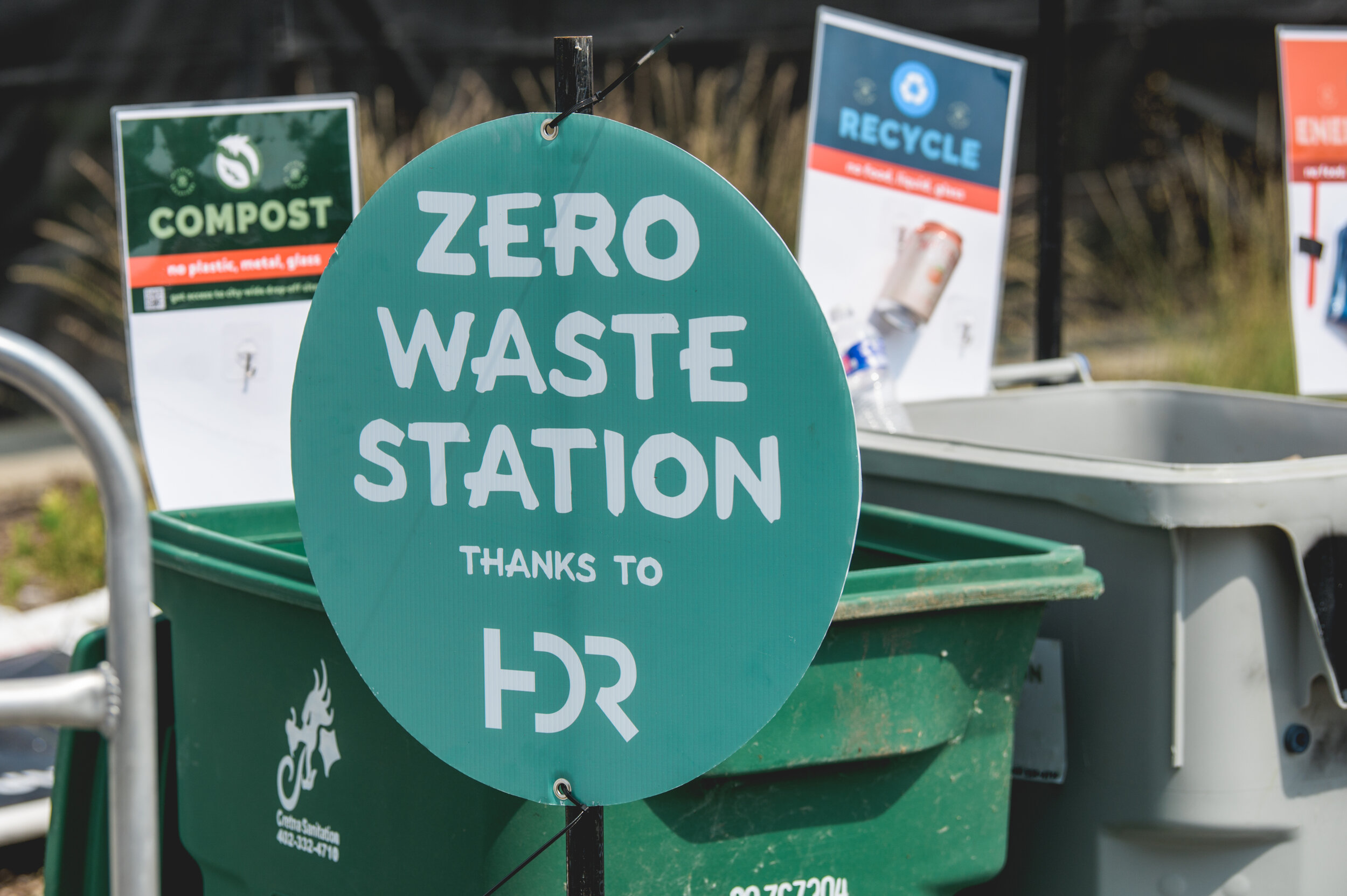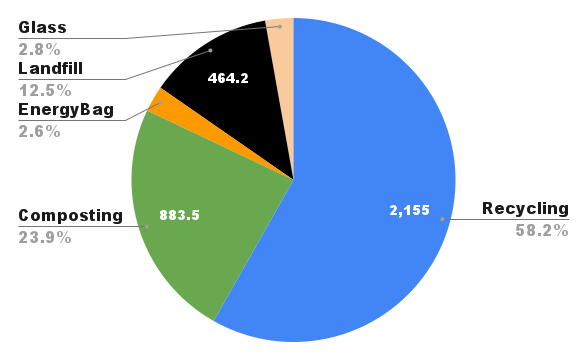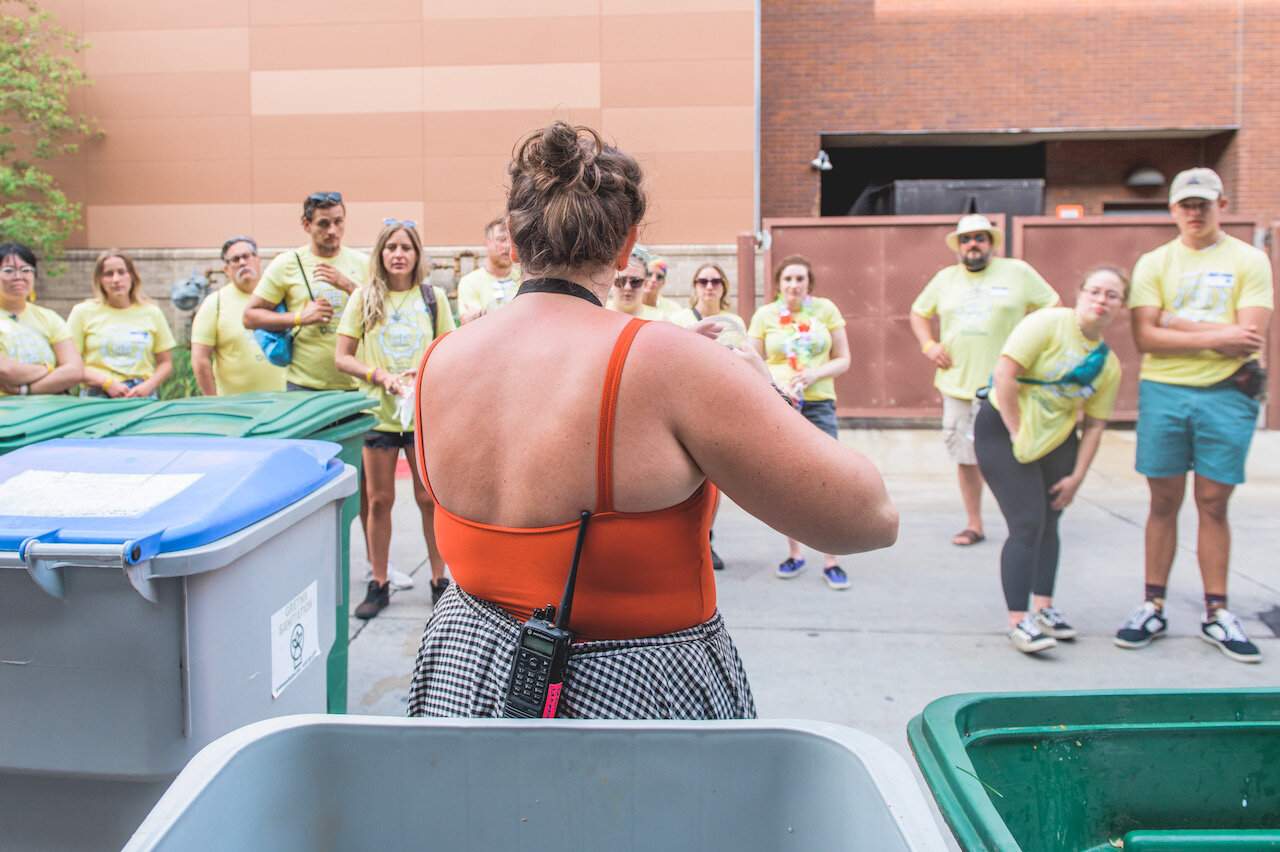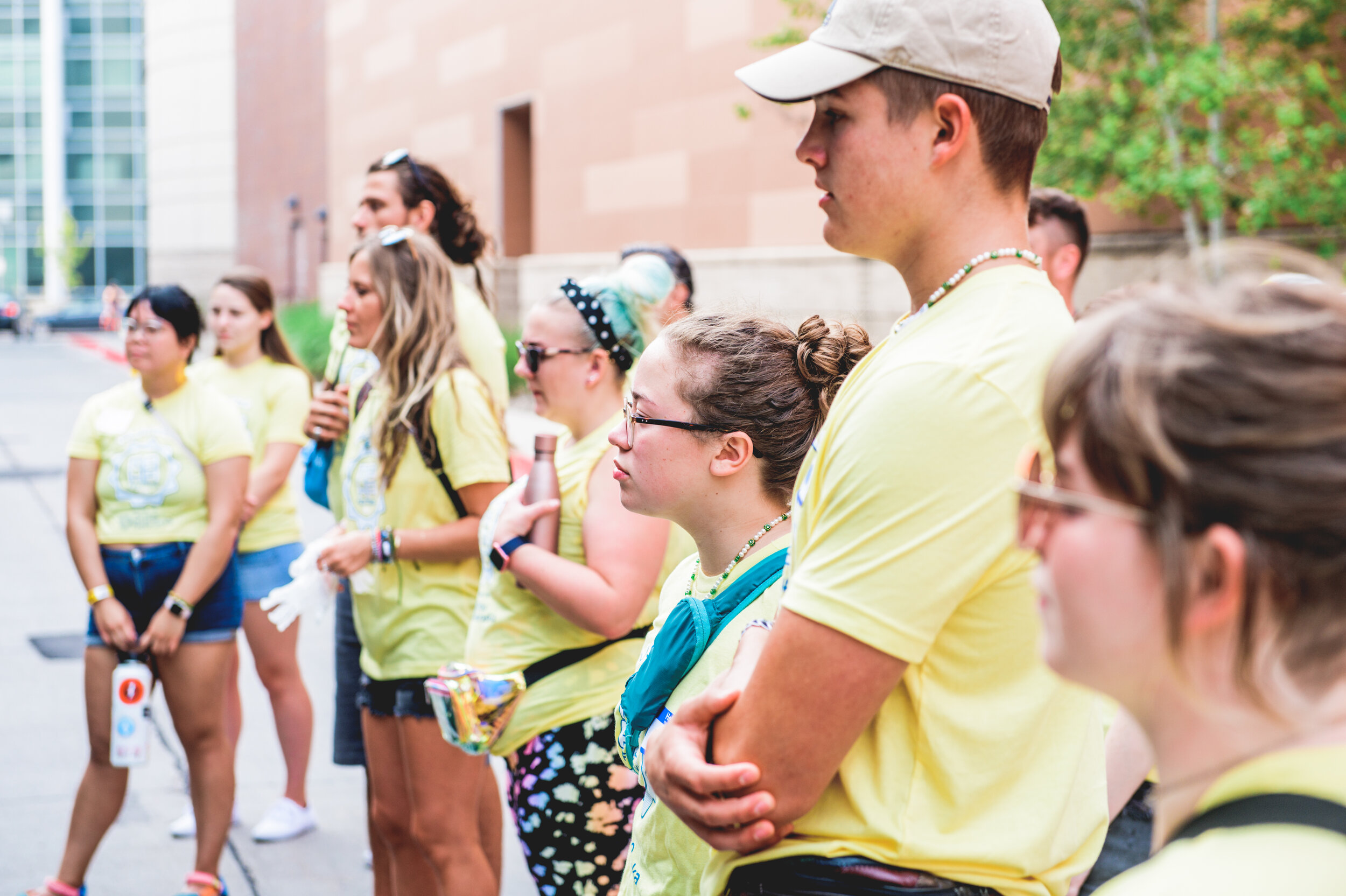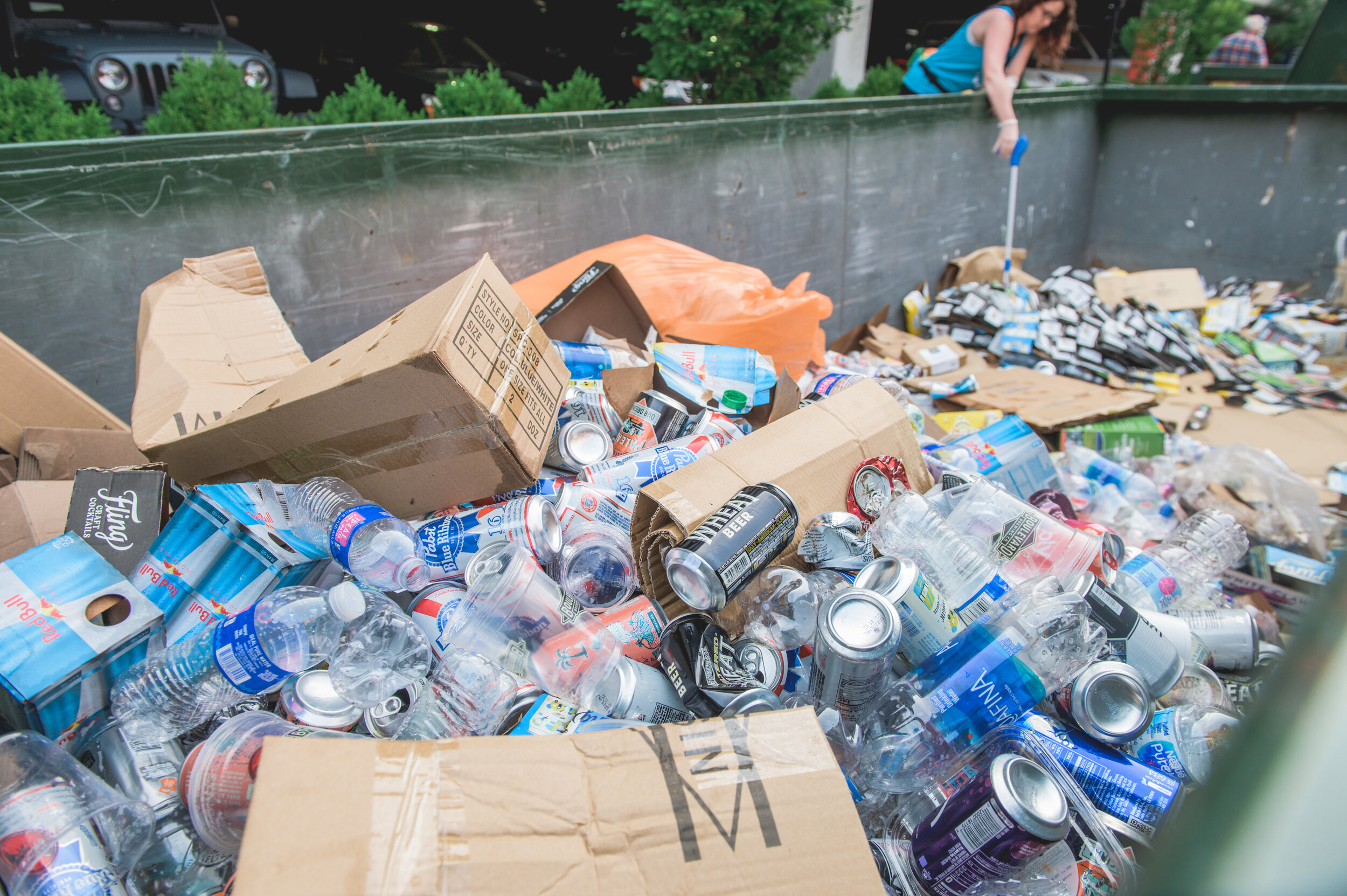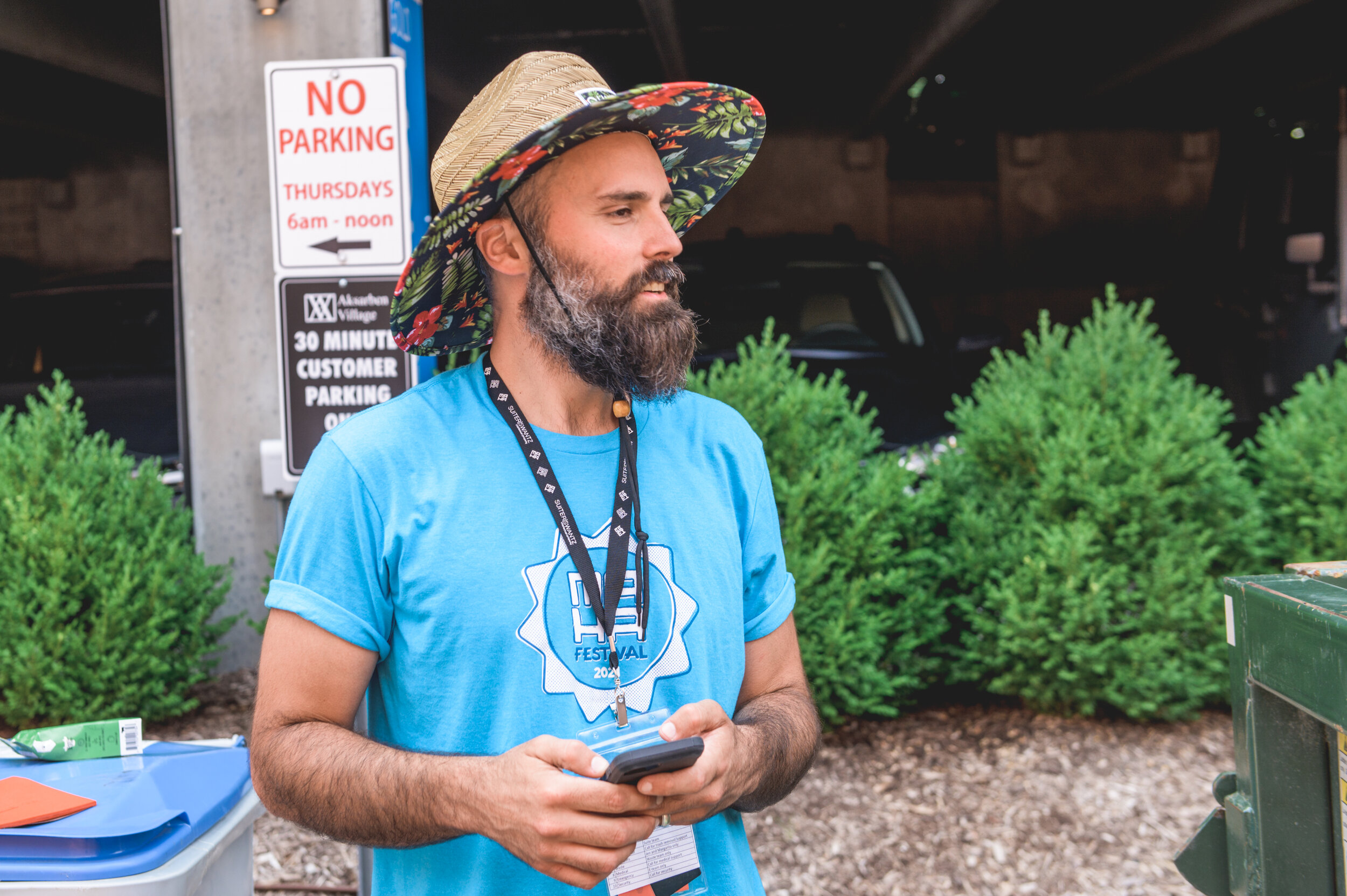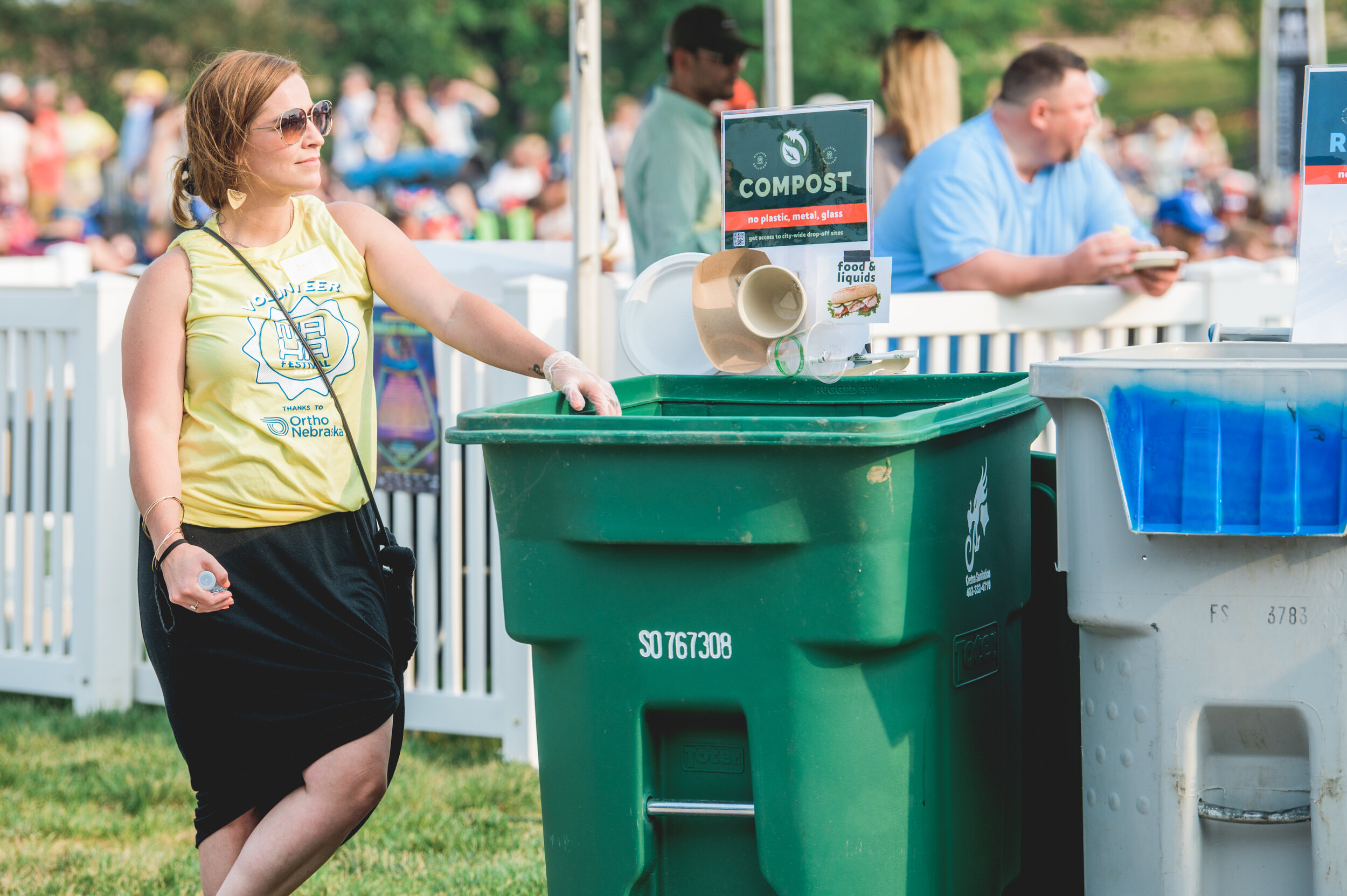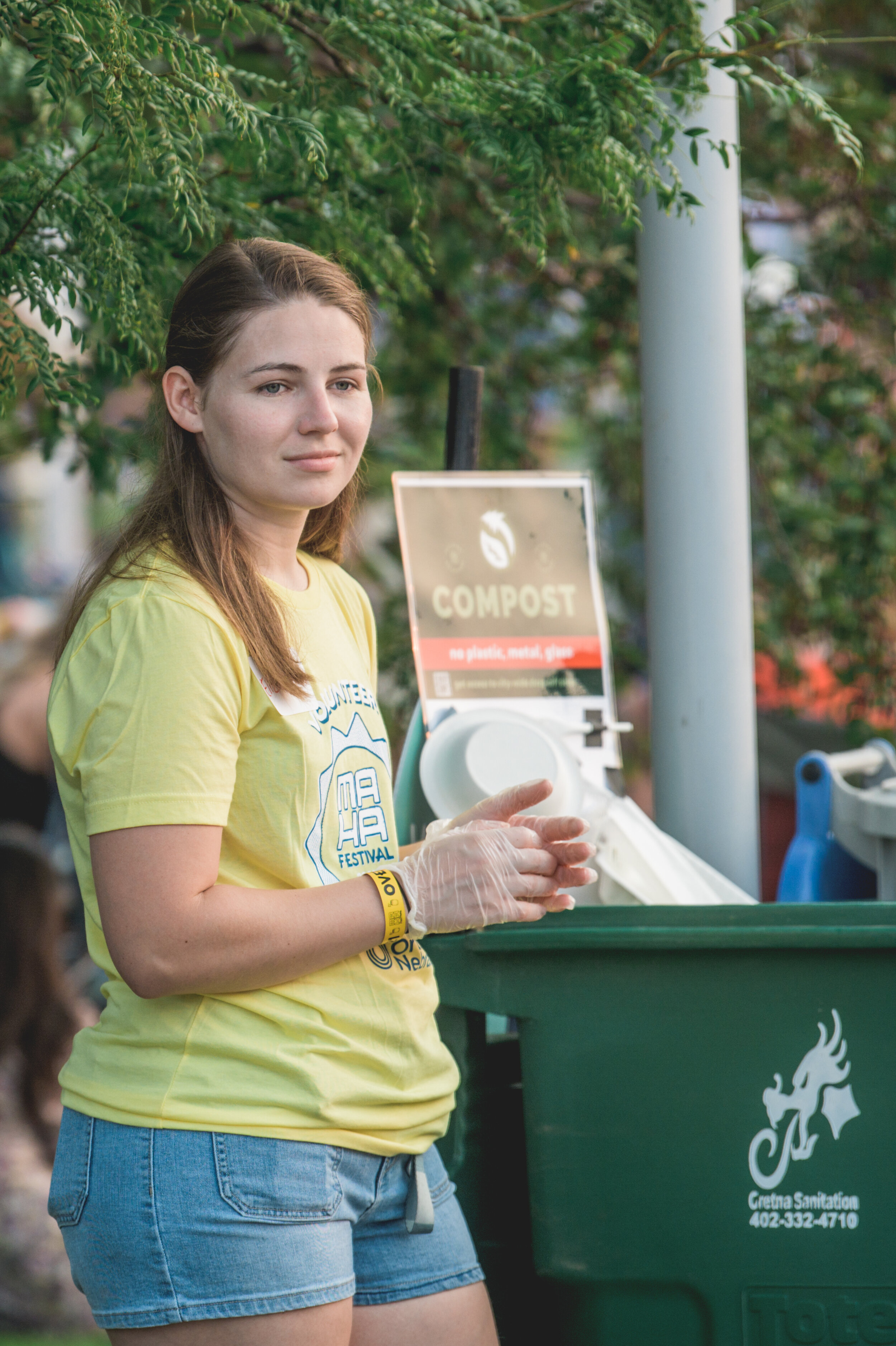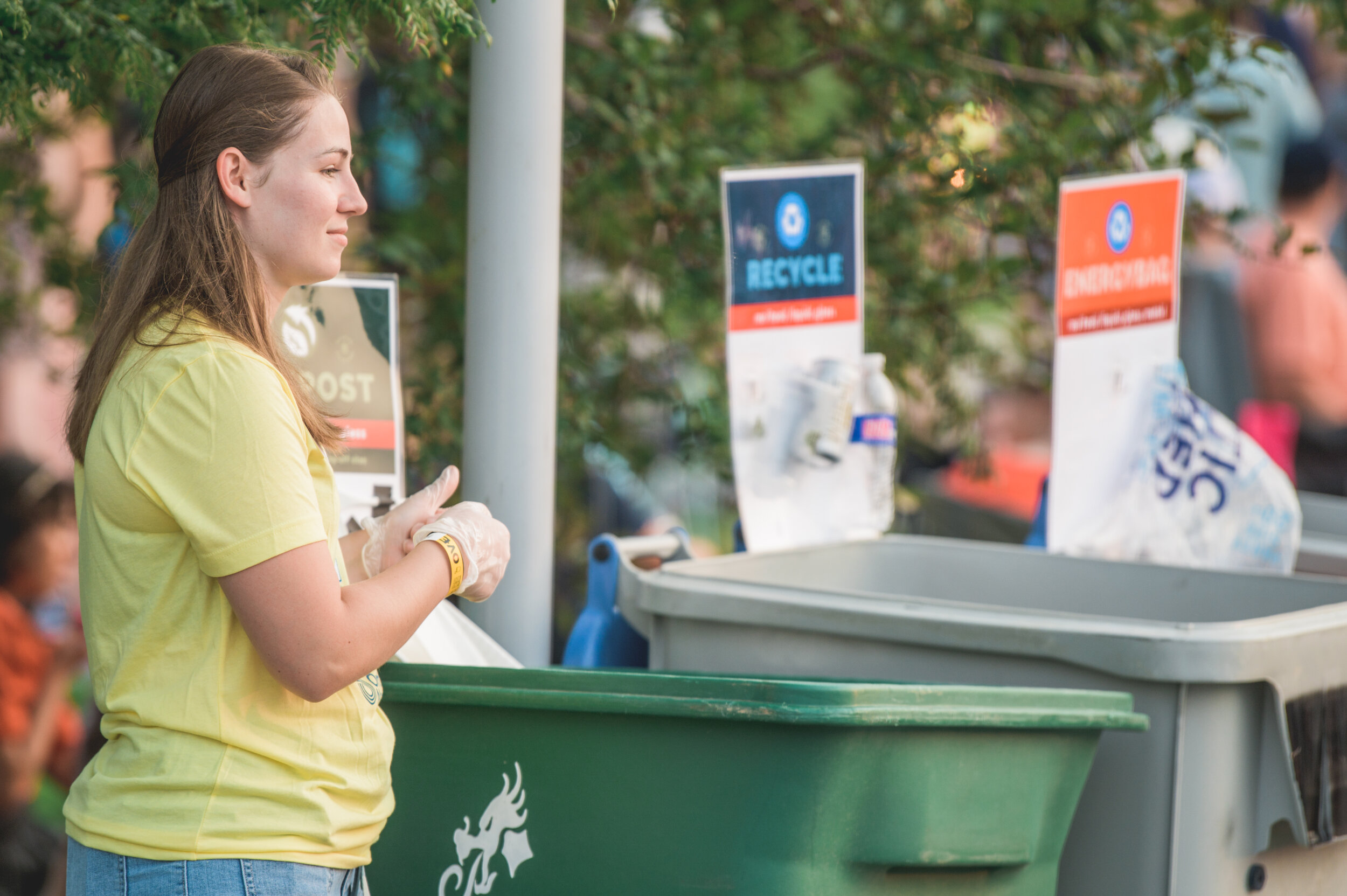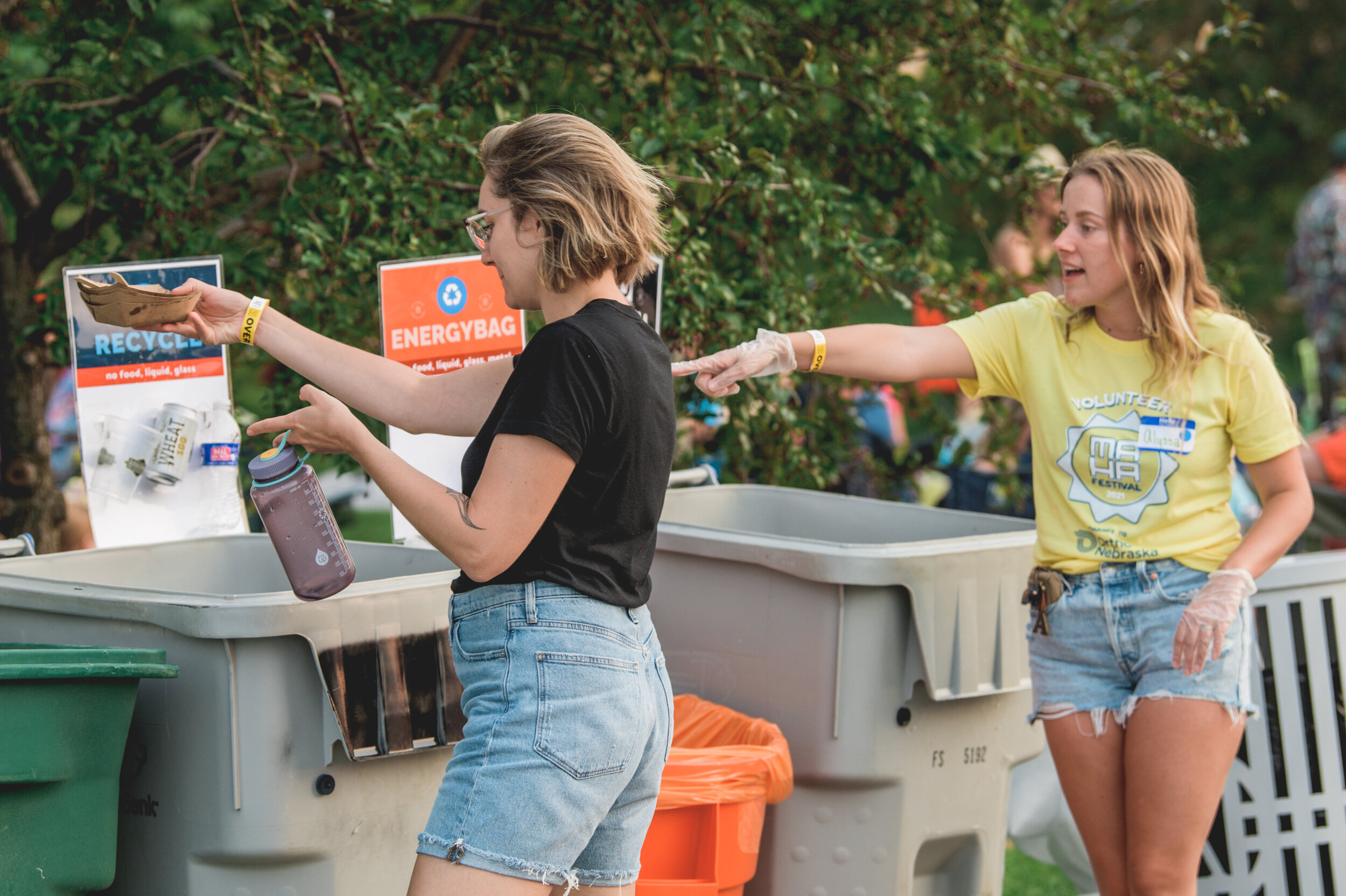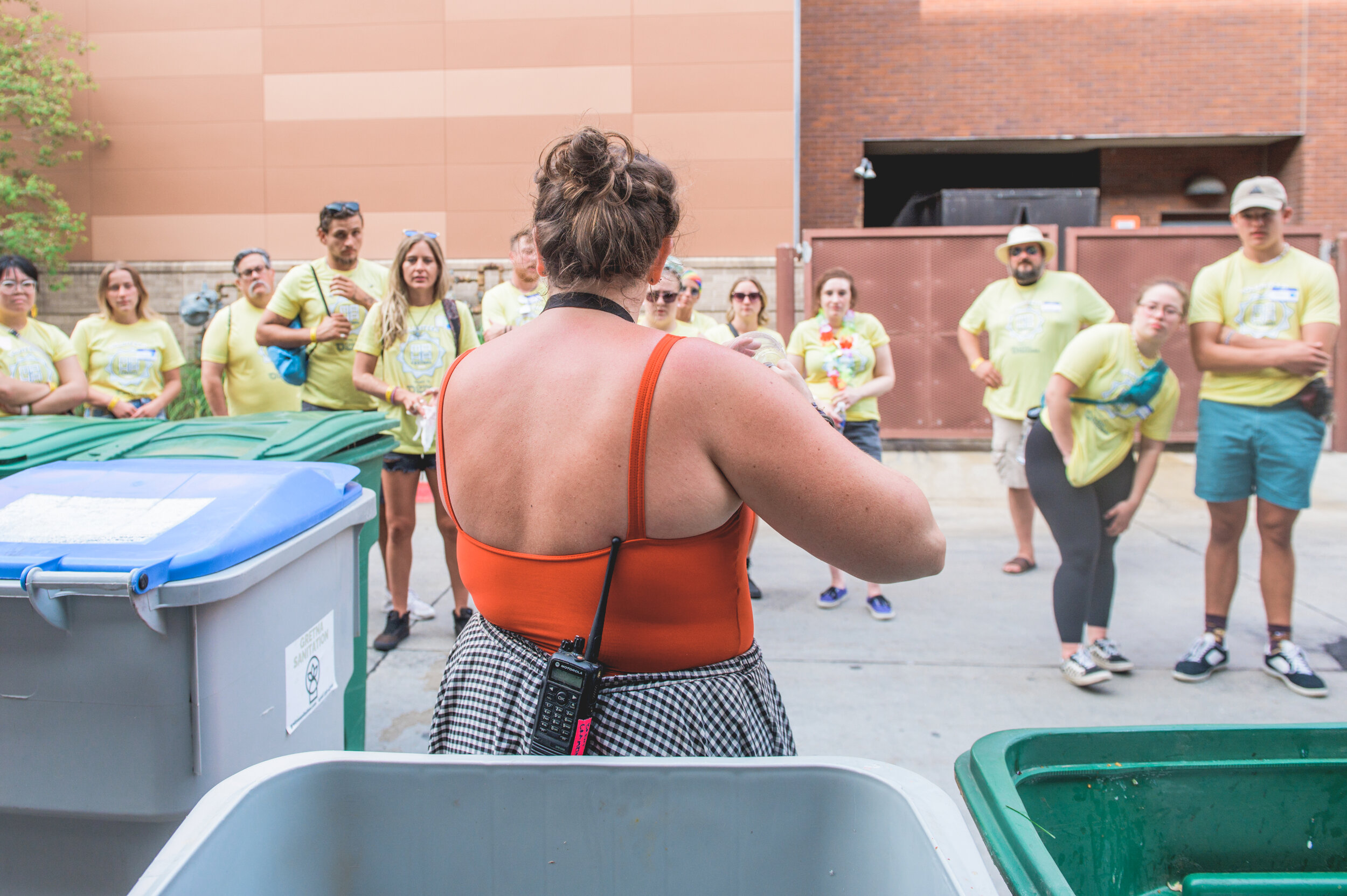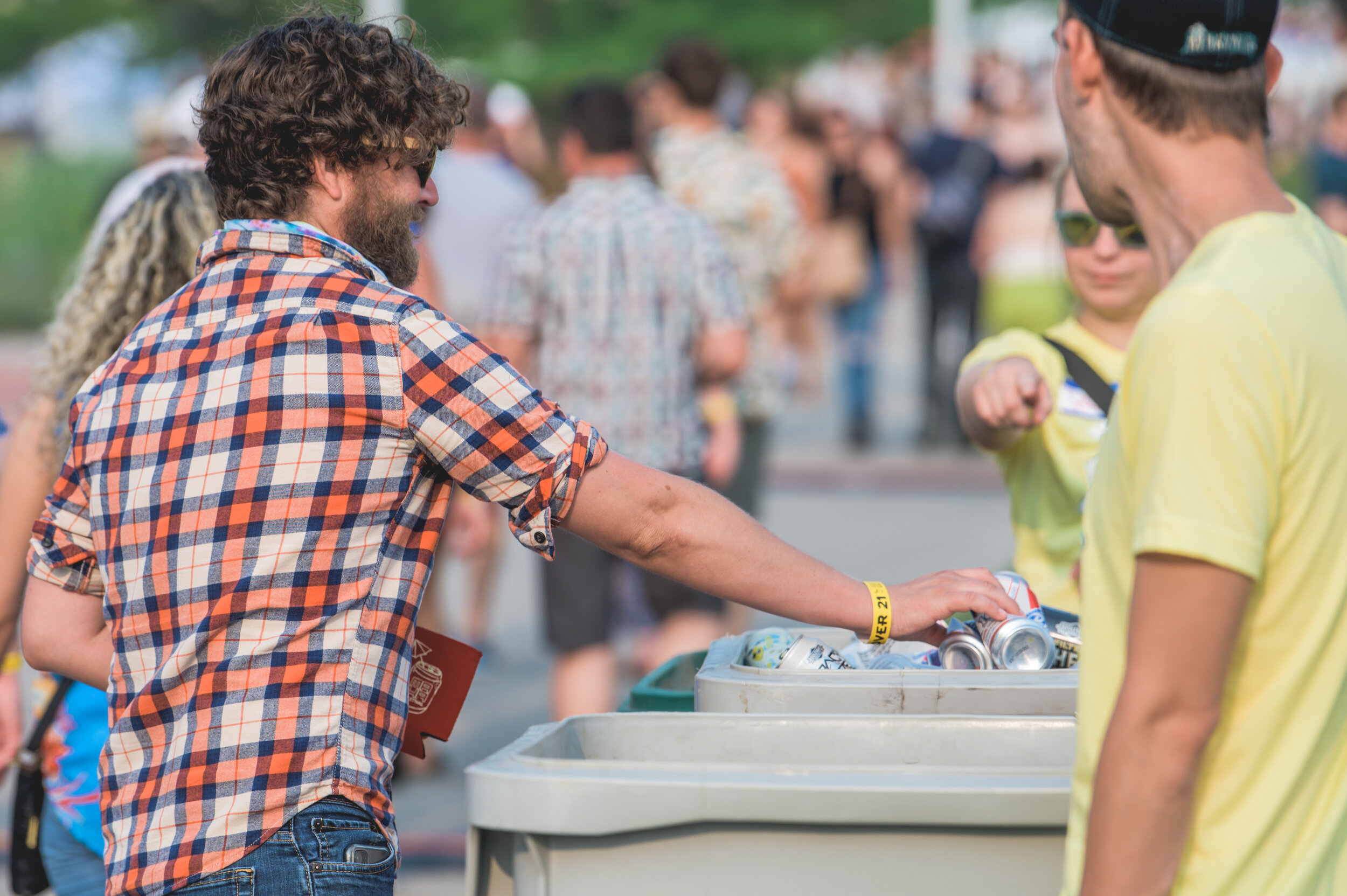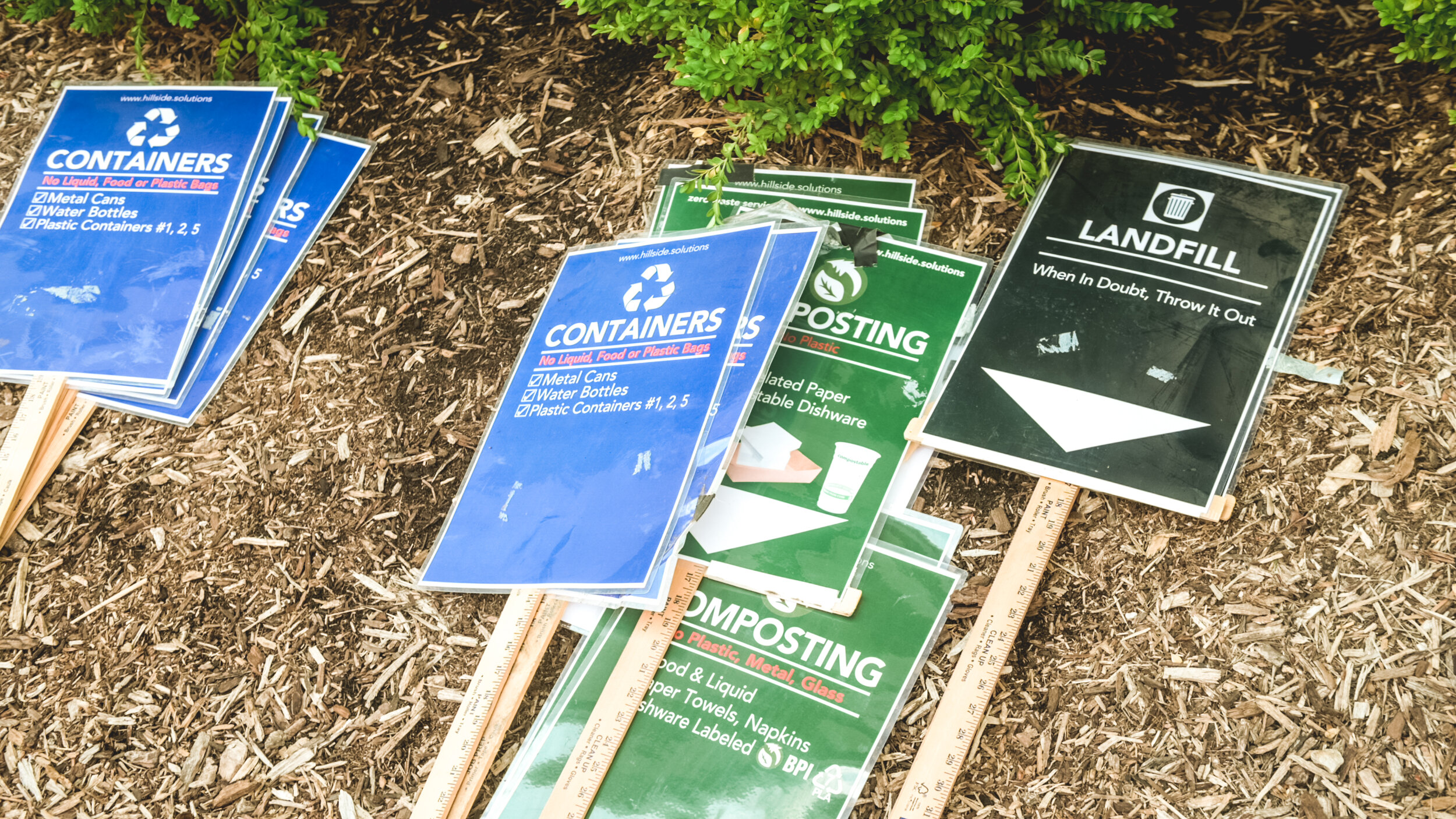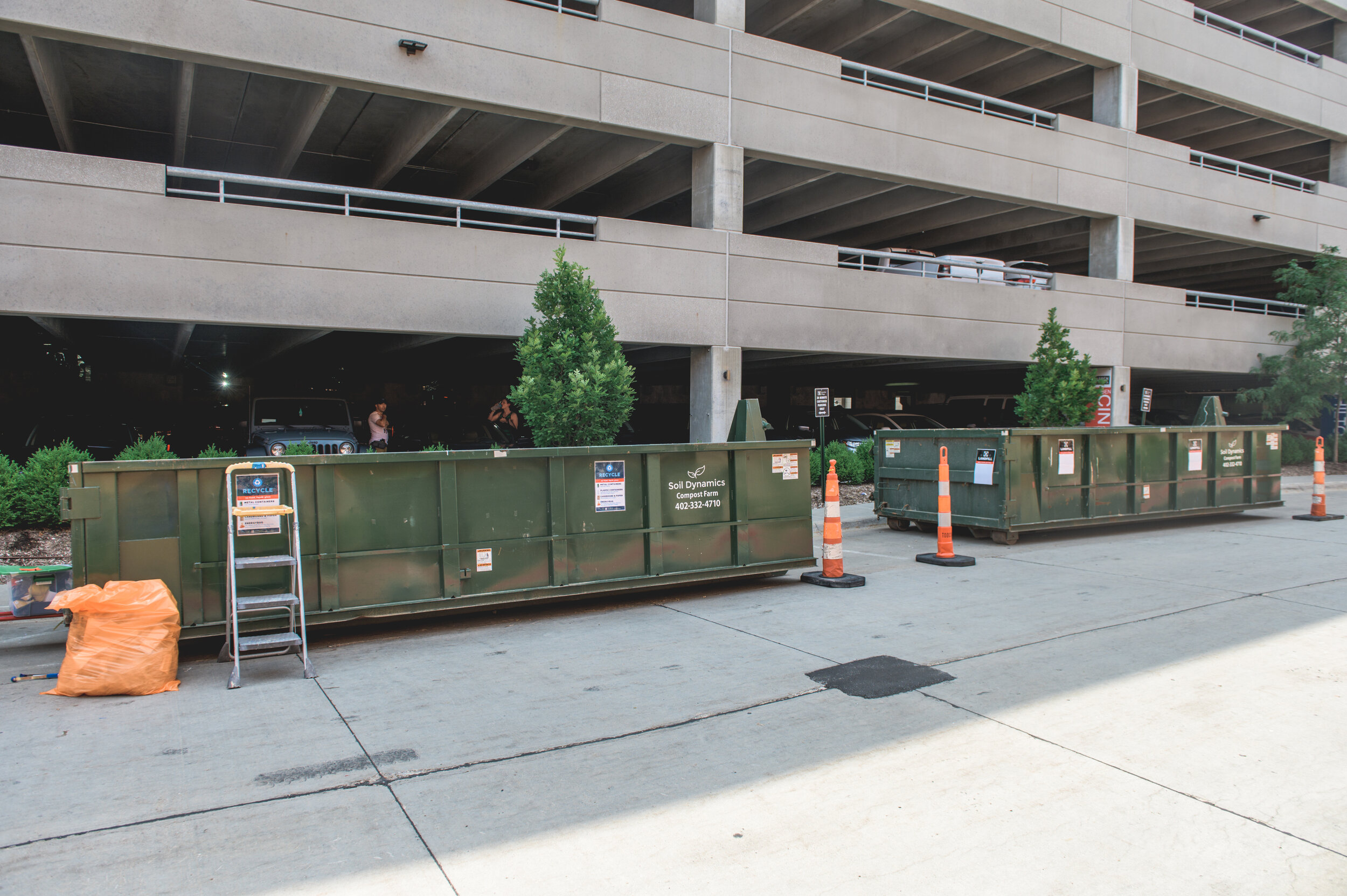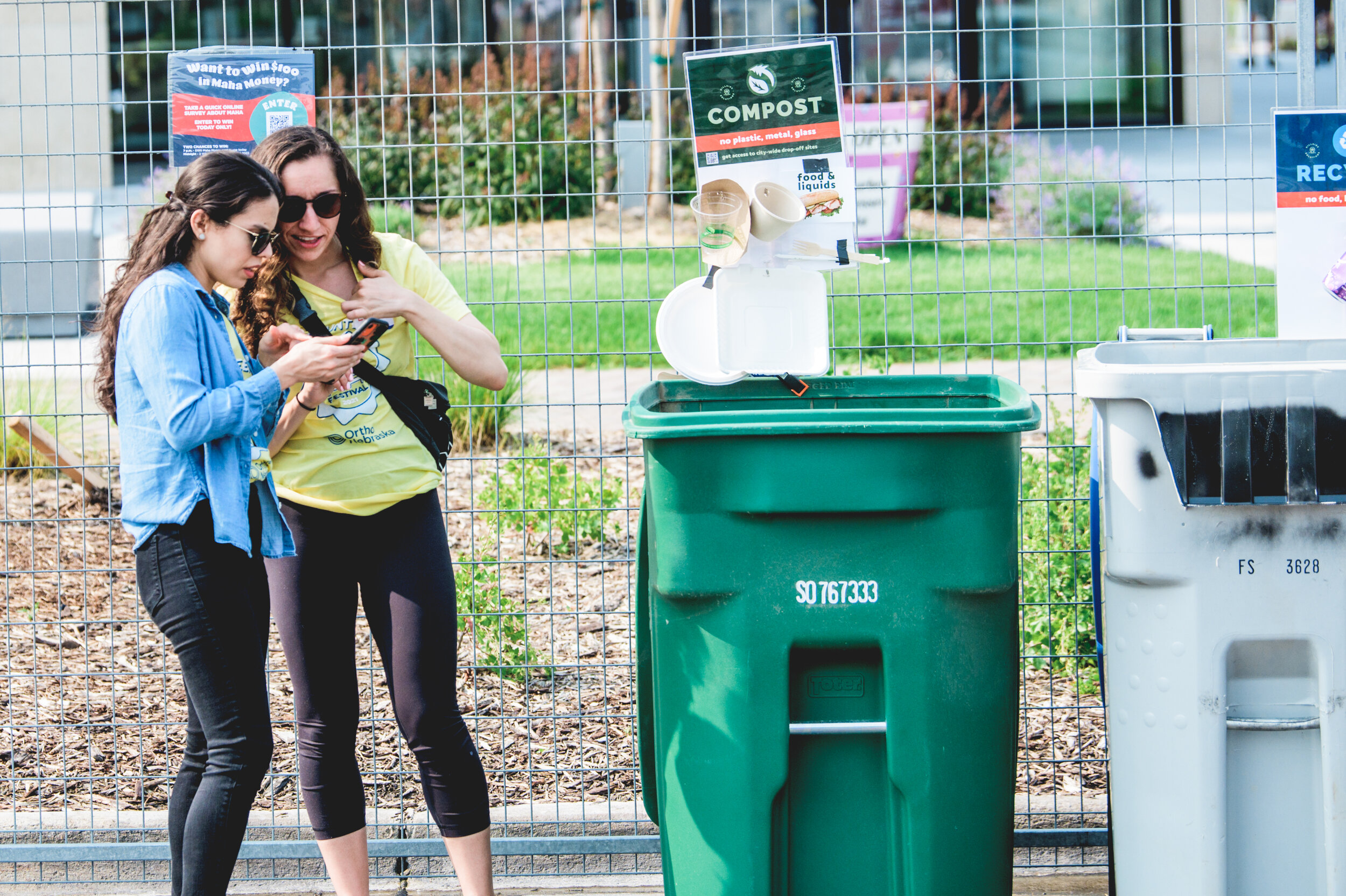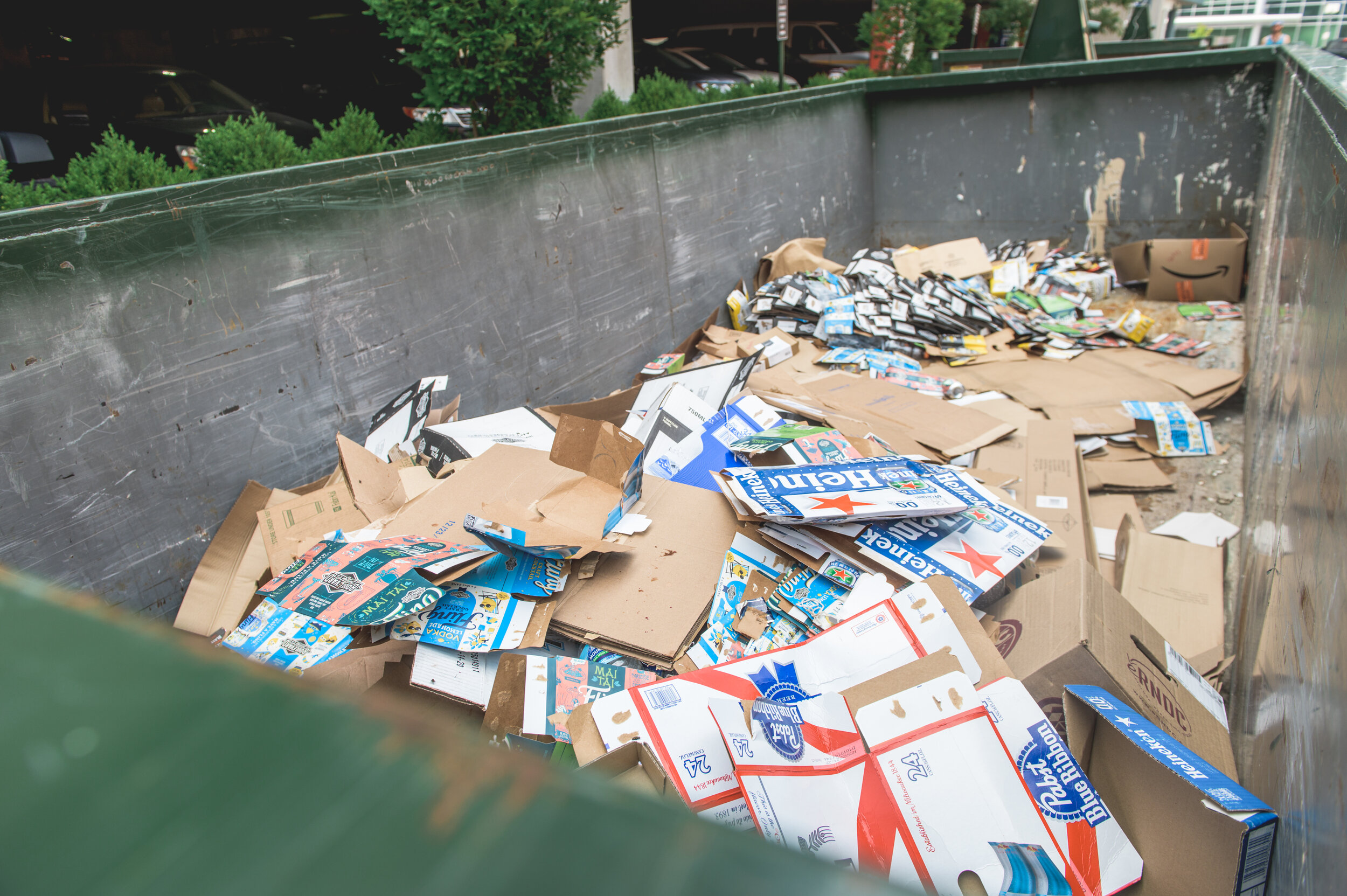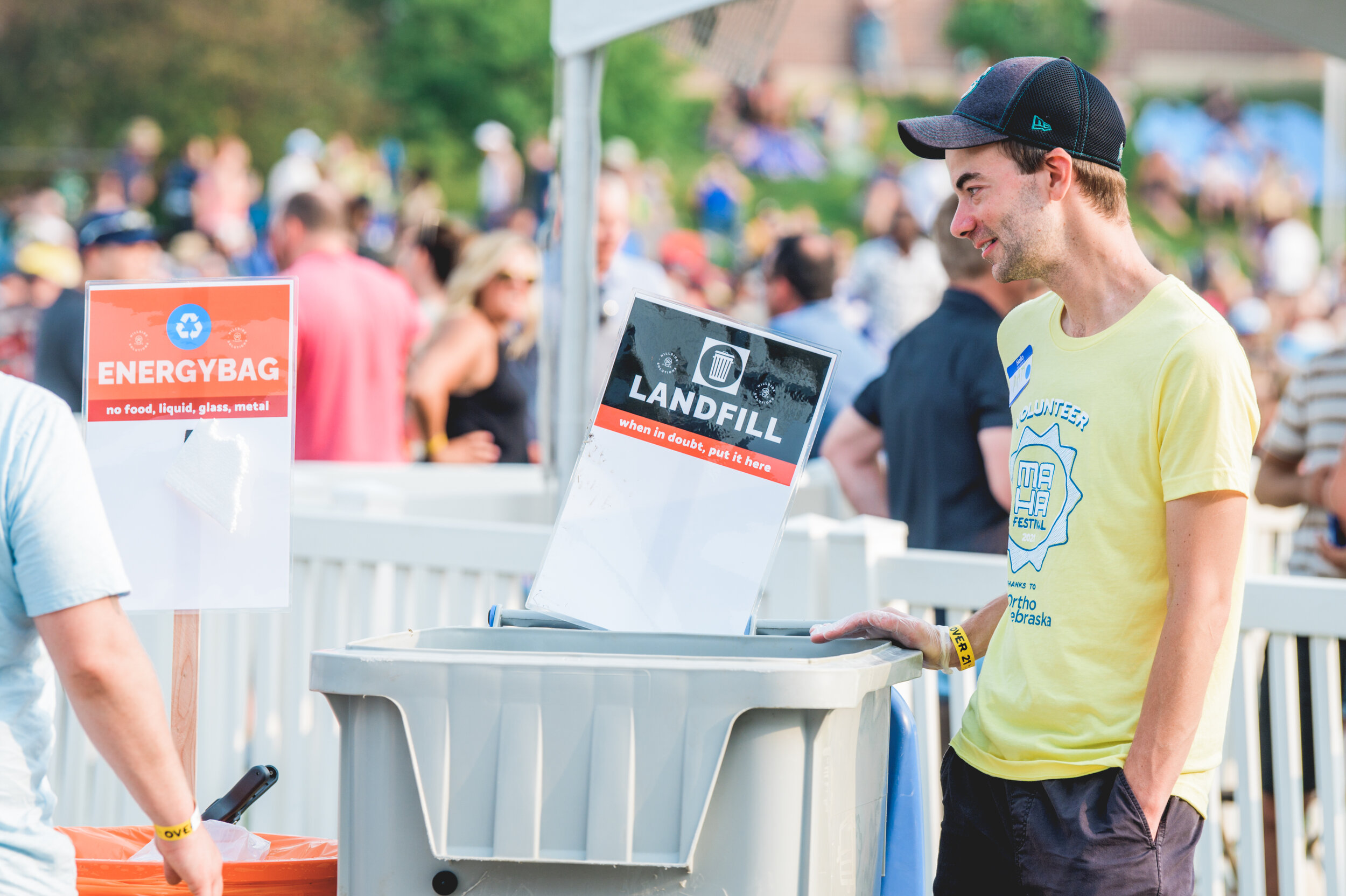Guide for Low-Waste Festivals
While the average American creates nearly 4.4 pounds of trash per day, one estimate shows that festival'-goers can produce up to 15 pounds per day.
Not great news. But here’s the upside: not all of it has to go to the landfill.
And at this year’s Maha Festival, we recycled & composted 87.5% of its material.
How did we do it? And how can you do the same?
Let’s dive in …
About Maha Festival
MAHA Festival is an annual celebration of music & discovery in Omaha, Nebraska.
At the 2021 event in Aksarben Village’s Stinson Park, headliners Khruangbin & Thundercat played to (we estimate) 6,000 to 7,000 people.
The goal they gave us was to make Maha a low-waste event. Meaning we want to send the least amount of material to the landfill as possible. The long-term goal is to make the festival zero-waste. Meaning 10% or less of the total waste produced is sent to the landfill or incineration.
We’ve partnered with Maha since 2018 to help meet its sustainability goals. But this is the first year we were able to weigh every stream of material.
And what we discovered completely & positively blew our minds …
Quick Recap
A beginning-to-end video recap of what happened.
How Much We Diverted
Together, we diverted a whopping 3,239 pounds from hitting the landfill. That’s 87.5% of the total amount of material collected!
Above and beyond what our projections were.
Big thanks to the incredible volunteer team, Hillside Solutions staff, and Maha staff. And a special thank you to HDR for sponsoring these efforts.
Recycling Overload!
As we were approaching our final figure of 2,155 pounds of recycled material, we had a problem: We were running out of space to put it.
So nearing the end of the event, we converted a 20-cubic yard roll-off container meant for landfill into space for recycling. We didn't see this happening, but so stoked to do it!
Composting Queen
One of the big reasons we had such a successful effort this year is what we call “the Maggie effect.”
She advanced some defensive strategies we initially hadn’t planned for. While attempting to make more room for compostables in a toter cart, her efforts culminated in the cart tipping over … while she was still in it. (Sorry, Maggie, we had to share your gallant sacrifice). 😂
Thank you, Maggie!
How You Can Do the Same
What's the Secret Sauce?
Luckily whether you’re throwing a small work party or a multi-thousand-person event, the format is mostly the same.
If you’re not working with us, all of the following suggestions are based on the assumption you’re working with a waste hauling company that, at a minimum, can transport landfill and recycling items. When possible, find someone like us who can also compost and recycle glass.
1. Sustainability Pledge
Before the event, think ahead about the materials your guests will be utilizing. The earlier you do this, the better.
Best Practice: Food and drink vendors are going to be the majority of the waste. So before you bring in vendors, create a sustainability pledge that they are required to sign and participate in. The main goal is to be sure that all single-use materials that will be thrown away on festival grounds are reusable, recyclable, or compostable.
2. Sourcing Single-Use Materials
Purchasing compostable service-ware is super confusing. Many companies market a fork, for example, as eco-friendly. Reading the fine print, you may discover the “biodegradable” fork only has 10% plastic instead of 100% plastic.
Better for the environment? … Hardly, as plastic can’t be composted and products that combine plastic and compostable materials can’t be recycled.
Best Practice: Partner with a service-ware distributor to provide all single-use items to the food vendors. At Maha, we recommended Larsen Supply Co.
The food vendors won’t have to go out of their way to figure out what meets your requirements, so they save time. With bulk purchasing power, you can negotiate better prices, so the vendors will save money. And with the consistency of materials, the festival-goer will have a better experience getting materials into the right place.
3. Pre-Audit the Materials
The food vendors are small business owners. Meaning, they’re super busy and will probably wait until the last minute to order. The last thing you want is someone doing an overnight order on Amazon of who-knows-what.
Best Practice: Assume vendors need the help, so contact them a few weeks ahead. Verify what they are using (this will come in handy later), make sure they aren’t going to have any surprises there, and help them get their order palced.
4. Creating Zero Waste Stations
With the help of nearly 100 volunteers at Maha, every piece of solid waste funneled through a fleet of containers affectionately called "Zero Waste Stations."
When guests go to throw away things, they are met with four different ways to separate their trash: EnergyBag, recycling, compost, and landfill. We call these different categories a stream. And to help festival-goers pick the right stream, volunteers post up at these stations to help guests make better choices with their waste.
So, the bonus is, these events double as impactful educational events that help normalize the concept of zero-waste.
There are many small steps you can take that make a big difference, so for this portion, we recommend checking out our Quick Start Guide.
Here are a few event-specific best practices: The fewer stations you can get away with, the better. Traditional landfilling methods tell us to put as many trash cans out as possible to make it as convenient as possible. But you won’t be able to monitor all of these, so instead pick high volume areas to focus on.
Every container needs a poster. On your posters, leave plenty of room to attach the physical items that will be thrown away. While it may not look pretty, it allows for less friction for the festival-goer. They have a can in their hand, and they see a poster with the same-looking can. Easy!
To attach items to the posters, we used to use tape. But we discovered that takes too long and looks horrible.
Now we use adhesive hooks on thick laminated posters. You poke a hole in the item you want to hang and then attach it to the hook. That way you can easily detach at the end of the event and reuse those posters.
5. Sourcing Volunteers
To pull this off, you’re going to need lots of volunteers. And since most festivals already have a mechanism to recruit volunteers, you’ll just add this piece into the mix.
Best Practice: Try to have 2 volunteers at each station for the entire event. If there are no volunteers present, assume everything will return as landfill. Ensure you provide great incentives for volunteers. Maha gave away free branded shirts and tickets. Plus they were all invited to the main stage just before the headliner began.
Train them before you deploy them to the stations (we have a list of the big points to cover), but since you’ll have samples attached to every poster, their job should be pretty easy as long as they are engaged in the process.
6. Weighing Materials
When containers are full, you’ll need a team focused on switching them out. As they come back to a designated home base, you’ll want someone to spot-check the carts.
This is your opportunity to pull out contamination, or at the least ensure that you aren’t contaminating your other streams with a bad batch.
Then the fun part: you weigh it. Any simple commercial scale will work. You shouldn’t have to spend more than $100 on this.
We used Google Sheets to report the progress we were making in real-time on our website. Now you can, too.
Ready to Plan Your Zero-Waste Event?
At Hillside Solutions, we love helping companies show their commitment to the environment while showing off a model of zero waste to their guests. Our zero-waste event planning services can apply to all types of events of all shapes and sizes. In addition, we offer resources and tools that will quickly reduce waste at your event.
Our Sustainability Consultants walk you through the steps necessary before, during, and after the event. By hiring Hillside, you will:
Learn how to incorporate zero-waste best practices quickly.
Discover how and why zero-waste is both environmentally and economically beneficial
Explore how others have successfully moved toward the zero-waste goal within the community
Understand how to work with vendors, volunteers, and staff to meet your goals while you begin planning the aspects of your zero-to-low-waste event.
From a jammin' music festival to street dance, like Dundee Days, reducing waste follows the same principles. Know that every opportunity to hold a low-to-zero waste event positively impacts the environment and offers the chance to show guests your sustainable goals are achievable.


